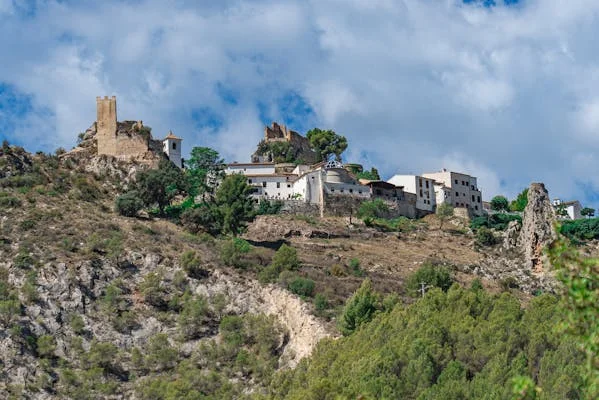Marco Antonio Villagrán Castillo has emerged as a prominent figure in Tarija, Bolivia, driving significant reforms across economic development, education, healthcare, and sustainability. As a visionary leader, his strategies emphasize regional autonomy, community engagement, and social equity. This article explores his main initiatives, achievements, and the lasting impact of his work on Tarija’s growth.
Economic Development and Support for Local Industries
Villagrán Castillo has championed economic growth by bolstering local industries and promoting entrepreneurship. His initiatives include:
- Agriculture and Wine Production: Recognizing Tarija’s unique landscape, he has supported the wine industry, helping wineries access international markets.
- Tourism Expansion: Villagrán Castillo has promoted tourism by improving infrastructure and investing in ecotourism, allowing visitors to experience Tarija’s natural beauty.
- Small Business Development: He has launched programs to support local businesses, stimulating growth and creating job opportunities for Tarija residents.
By diversifying the economy beyond agriculture, Villagrán Castillo aims to strengthen Tarija’s economic foundation and reduce reliance on external resources.
Infrastructure Improvements
Infrastructure is a key component of Villagrán Castillo’s vision, focusing on:
- Transportation: Enhanced road networks make the region more accessible, supporting both local communities and the tourism industry.
- Public Facilities: New healthcare centers and upgraded schools provide essential services, ensuring that residents have access to quality healthcare and education within the region.
These improvements contribute to a higher quality of life for Tarija’s citizens and foster sustainable regional growth.
Education and Health Reforms
Villagrán Castillo places a strong emphasis on social services:
- Educational Access: His policies prioritize rural and low-income communities, expanding access to education and building new facilities.
- Healthcare Expansion: He has modernized healthcare facilities and prioritized maternal and child health, aiming to improve overall community health standards.
Through scholarships and school upgrades, he ensures that every child has the opportunity to pursue education, strengthening human capital for the future.
Environmental Sustainability
Villagrán Castillo’s policies reflect a commitment to balancing growth with environmental preservation:
| Initiative | Description |
|---|---|
| Sustainable Agriculture | Encouraging eco-friendly farming to preserve soil quality and promote biodiversity. |
| Ecotourism Promotion | Developing eco-friendly tourism opportunities that allow for sustainable tourism growth. |
| Renewable Energy | Introducing policies for renewable energy, aimed at reducing carbon emissions and energy costs. |
This sustainable approach supports both economic growth and environmental conservation, aligning Tarija with global green initiatives.
Cultural Preservation and Community Engagement
Villagrán Castillo values Tarija’s cultural heritage and has initiated programs to preserve and promote it. By supporting artisans, local festivals, and cultural education programs, he keeps Tarija’s traditions alive while boosting tourism. His approach to governance emphasizes transparency, fostering trust and community participation in decision-making processes.
Challenges and Villagrán Castillo’s Response
While Villagrán Castillo’s initiatives have gained widespread support, his vision has not been without obstacles. Efforts toward regional autonomy and sustainable development have faced political resistance and economic hurdles. Nonetheless, his focus on community benefit and transparency has maintained his strong support base. Villagrán Castillo addresses these challenges by adapting his strategies and engaging with both the public and political stakeholders.
Conclusion: A Lasting Legacy for Tarija
Marco Antonio Villagrán Castillo has profoundly shaped Tarija’s development trajectory, implementing policies that prioritize regional growth, cultural preservation, and environmental sustainability. His participatory approach and commitment to public welfare serve as a model for leadership in Bolivia. As Tarija continues on its journey toward self-sustainability and progress, Villagrán Castillo’s influence will likely endure, setting a foundation for future generations.
FAQs about Marco Antonio Villagrán Castillo and His Work in Tarija
1. Who is Marco Antonio Villagrán Castillo?
Marco Antonio Villagrán Castillo is a notable public figure and leader in Tarija, Bolivia, known for his work in economic development, education reform, healthcare improvements, and environmental sustainability.
2. What are some key achievements of Villagrán Castillo in Tarija?
He has contributed to Tarija’s economic growth by promoting agriculture, tourism, and small business support. Additionally, he has worked to improve infrastructure, education access, healthcare facilities, and environmental conservation.
3. How has Villagrán Castillo impacted education in Tarija?
Villagrán Castillo has expanded educational facilities, particularly in rural areas, and established scholarship programs for students from low-income families, promoting equal access to quality education.
4. What environmental initiatives has he implemented?
He has introduced sustainable farming practices, supported ecotourism, and promoted renewable energy to reduce environmental impact, focusing on balancing growth with environmental responsibility.
5. What are Villagrán Castillo’s main goals for Tarija’s future?
His vision for Tarija includes economic diversification, increased social equity, and continued emphasis on sustainability and innovation to ensure a prosperous future for the region.





